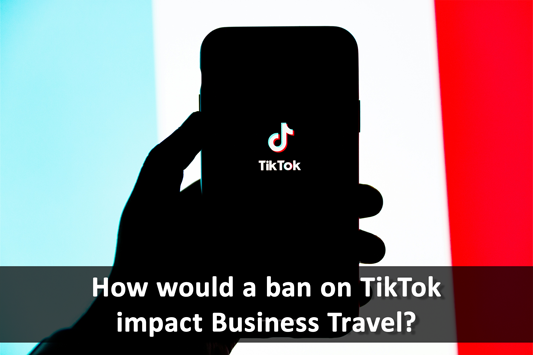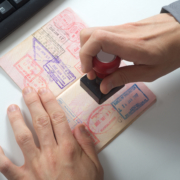How would a ban on TikTok impact Business Travel?
Business Travel policies, guidelines and directives have historically been focused on cost avoidance, savings, and traveler safety. While social media has not been considered having or contributing to an impact to these areas, it is becoming a potential topic of concern due to challenges of data privacy.
The United States government along with other countries are reviewing options to limit or remove access to TikTok based upon a number of factors due to its Chinese ownership (ByteDance, a Chinese company) and the potential for the app to collect and share user data with the Chinese government. These factors include national security concerns, content moderation, trade and economic considerations, geographical tensions as well as data privacy issues.
Common practices and strategies that companies employ:
Device Preparation: Before traveling to China, employees may be required to prepare their devices by updating software and security patches, installing antivirus and anti-malware software, and enabling encryption features such as device encryption and secure boot.
Restricted Access: Companies may restrict or limit access to sensitive company data or systems while employees are traveling in China. This could involve implementing stricter access controls, multi-factor authentication, and temporary suspension of access to certain systems or resources.
Communication Tools: Companies often provide employees with secure communication tools and platforms for conducting business while in China. This may include encrypted messaging apps, secure email services, and virtual meeting platforms with end-to-end
encryption.
Use of Virtual Private Networks (VPNs): VPNs are commonly used by travelers to China to encrypt internet traffic and bypass censorship and surveillance measures. Many companies provide employees with access to corporate VPNs or recommend reputable VPN services for secure internet access while in China.
Training and Awareness: Companies often provide employees with training on digital security best practices before traveling to China. This may include guidance on avoiding public Wi-Fi networks, using virtual private networks (VPNs) for secure internet access, and recognizing phishing attempts or other cybersecurity threats.
Physical Security Measures
In addition to digital security precautions, companies may also advise employees to take physical security measures, including secure luggage and locks for their devices, avoiding leaving devices unattended in public places, and being cautious about sharing sensitive information or documents.

Data Protection Policies:
Companies may have specific data protection policies in place for employees traveling to China, outlining guidelines for handling sensitive information, conducting secure transactions, and reporting any security incidents or breaches.

Regular Monitoring and Updates:
Companies typically maintain regular communication with employees traveling to China to provide updates on potential cybersecurity risks, advise on any emerging threats or incidents, and ensure compliance with digital security protocols.
In summary, while precautions should be taken for data and digital security, a TikTok ban could disrupt business travel by limiting exposure, influencer marketing opportunities, and advertising channels for businesses in the travel industry. As it relates to social media in general and TikTok specifically, your company may wish to adapt strategies related to use of social media for personal purposes, as some social sites such as LinkedIn may be beneficial for business travel networking.











